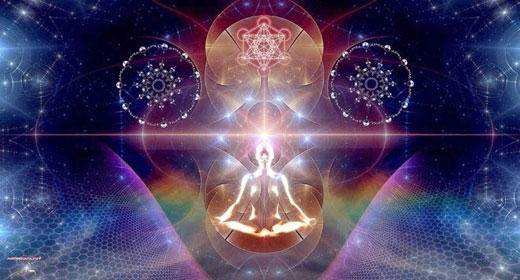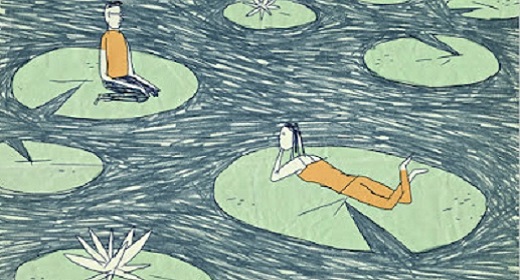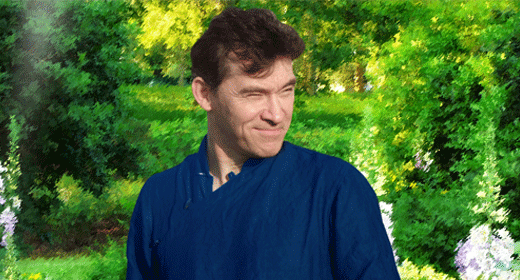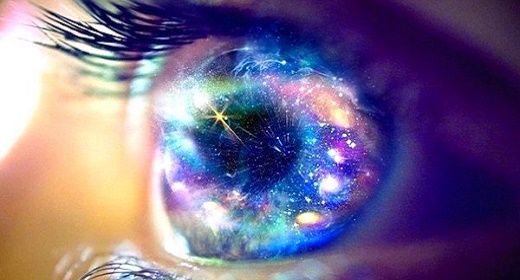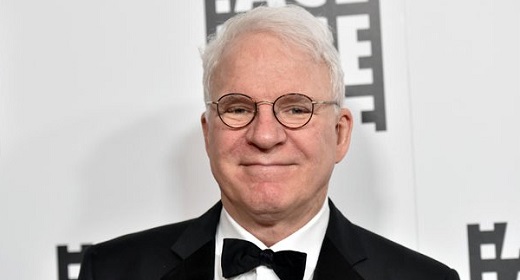by Rachel Rosenblit: So long, Carrie Bradshaw—there’s a new role model for go-getting thirty somethings. Gabrielle Bernstein is doling out inner peace and self-love for the postmodern spiritual set.
I’m sitting on the floor of a dingy room in a Hare Krishna temple in Manhattan’s East Village. The women here, cross-legged on a circle of ratty cushions, a mix of well-dressed twenty- and early-thirtysomethings—stylists, magazine editors, i-bankers, lawyers—are the types I’m used to seeing on the front lines of a sample sale, their pretty eyes cold and glaring at the size-4 competition. But here, tonight, all eyes are on Gabrielle Bernstein, a 31-year-old wisp-thin blond who has to pee. “I drank this humongous $15 coconut water,” Bernstein says, laughing. “I’m gonna lead you into a meditation and then go pee.” Bernstein, a life coach and author, could be the prototype for Downtown Barbie—beautiful, with long, shiny doll hair, tiny features, and an impossibly fit figure that looks both effortlessly and artfully styled in skinny jeans and a slouchy, off-the-shoulder sweatshirt from American Apparel. She’s like your cool friend’s cooler friend. She has an almost masculine energy, with her low-toned “dudes” and “what the fucks” and the way she seems unencumbered by mini melodramas; the cable guy showing up an hour late wouldn’t faze her.
This is Bernstein’s weekly “coaching group”—$187 for four sessions—and she tells me and the two dozen other women in the room to close our eyes and breathe deeply: “In through your nose, out through your mouth.” I’m instantly calmer. “Feel your energy shift as you breathe. Honor your energy; honor the shift. Center yourself into this room. Take a deep breath in, and release.” I open my eyes. “It’s my new book!” Bernstein suddenly announces, holding high above her head the first bound galley of Spirit Junkie: A Radical Road to Self-Love and Miracles. “I feel like the guy in Sixteen Candles, you know, when he holds up the underwear.” Everyone laughs; Bernstein knows her audience.
Many in the room are eagerly awaiting Spirit Junkie (out next month), having already devoured Bernstein’s best-selling first book, Add More Ing to Your Life: A Hip Guide to Happiness. Some show up for her monthly lectures, or have joined Bernstein’s Herfuture.com, a social network site (8,000 members and counting) where women can form “power posses” and share tips on topics such as body image and overcoming addiction. They’re buzzing about TV shows that Bernstein’s developing with her agents at William Morris, not to mention a jewelry line inspired by her spiritual lifestyle. And more than 18,000 fans follow her on Twitter—all of which prompted The New York Times to call her “a new role model for New York’s former Carrie Bradshaws.”
Bernstein’s big idea turns on resolving the conflict she says we all face between love—the pure state we’re born into, before we start collecting reasons to attack ourselves and each other—and fear. Fear breeds what she calls the ego, not Freud’s version but essentially that inner voice pushing doubt to the forefront of your mind, reminding you that you’re not good enough and neither are your thighs. Almost everything Bernstein espouses—asking for and learning to recognize miracles, surrendering to the guidance of the universe, and, especially, forgiveness—is contingent on silencing the ego, or, as Bernstein might say, “telling it to shut the fuck up!” She teaches that the people we’re jealous of, intimidated by, or angry with are our “assignments,” opportunities to practice compassion and to experience—hopefully, eventually—a sense of oneness rather than judgment and separation.
When Bernstein asks the group to share what “came up” for them during the week, women raise their hands to talk about troubles at work and fights with boyfriends, effortlessly incorporating her lingo: “I was totally `ego-tripping’ last night,” one says, and “I had to `take a fiver’ yesterday and go meditate.” One evening, a girl named Stephanie says she fears falling into a depression because her job hunt is going nowhere. Bernstein locks eyes with Stephanie. “If your happiness is based on external experience, then, my darling, you are fucked.” Emphasis on the fucked, as her voice rises. “I say that very seriously: If your experience of things being happy and abundant has everything to do with what’s going on outside—because the guy called, you got the job, whatever—like I said, you will all be fucked. Outside experiences are not for us to control. Our internal experience is what we can work with, what we can choose to change.” Her point isn’t that Stephanie should lie on a chaise and wait for a job to find her, so powerless is she to control the outcome, or even that she should dismiss the way she really feels—scared—it’s that if she chooses to feel defeated, then she will be.
If you’d have told me a year ago that I’d be vibing to Bernstein’s femme-fabulous pop spirituality, with its froufrou language and mystical mantras, I would have choked on my vodka soda. It all started, as it often does, with a boy. I’d met Chris on New Year’s Eve. I was decked out in a new black dress and a plastic feathered tiara; he was impeccable—Brooks Brothers After Dark with a James Franco smile, and he could dance. It didn’t matter that I flirted my face off, that I let him buy me glass after glass of champagne, that we shared a cigarette (I don’t smoke), or even that I went back to his personality-free Gramercy apartment before we fell asleep making out to the Fray, a band I wouldn’t be caught dead…making out to. It didn’t matter, because in New York City, New Year’s Eve is one of two nights (Halloween is the other) when the streets turn into an ape-shit free-for-all, when you step into skyscraper heels and out of your stuffy skin, when you—whoops!—lose your wallet and take swigs from a bottle, and everything seems lit through a soft glowing filter as though you’re the star of some shaky-camera indie, and you feel free to make eyes at all the sharp-dressed men in town before kicking off the heels and passing out on someone’s couch, bed, floor, until you finally wake up, wear sunglasses to brunch, and pretend none of it happened. I might have forgotten the whole thing, the guy, the dancing, the moment I slipped on the ice outside before—oh!—he caught me. I almost gave him a fake number as I left his place at 6 a.m., clutching my tiara. But there was something about the way he’d ushered me into a cab well after midnight despite my coy drunken protests, the way he made a point of kissing me in his apartment under mistletoe left over from Christmas, the way he’d scooped me up in his arms when I’d fallen asleep on the couch to carry me to bed, that was unbearably charming, though the just-right chivalry also screamed “player.” I couldn’t resist either.
We started dating. Rather, we choreographed a little tango of apathy: him dialing me up somewhere between 11 p.m. and last call, and me acting as if I neither anticipated the call nor noticed the time. Yeah, that’s me! Just so totally not the typical clingy girl who wants to know what you’ve been doing all night or why you’ve never taken me on a real date. Actually, we went on one—one, in four months—and it was an accident: After I met him out for St. Patrick’s Day, we drank a bunch of beer and realized that neither of us had eaten, so we left the bar and split a burger. The truth is, I knew that Chris didn’t really like me, didn’t care about who I was or how I felt, couldn’t be bothered to ask about my brothers or friends or where I dreamed of traveling one day. But I kept torturing myself. One night he sent me a text about how “that Lady Antebellum song—`It’s a quarter after one, I’m a little drunk, and I need you now’—is totally our song.” “Ha!” I responded, as if truly amused. The day after Easter he e-mailed me about church services on Long Island: “I ran into an old girlfriend, who saw how desirable I was holding my nephew (who is also a splitting [sic] image of me), and she did the `look-at-how-cute-the-kid-is,’ and `look-at-how-much-I-regret-breaking-up-with-you’ look.” I wanted to respond with a seething “Seriously? Why are you telling me this, guy I’m sleeping with?! (And it’s spitting, you moron.)” Instead, I played bored: “Sounds like the opening scene of a Hallmark Channel movie.” “In my movie,” he replied, “she gave me a `Happy Easter’ in the church parking lot, if you know what I mean.”
Even if I chose to believe that we were both simply feeling each other out, both so scared of getting hurt that we kept building the wall higher, secretly hoping that the other would yank a brick out already, there were plenty of things about him I genuinely disliked. He was misanthropic and hermetic; he judged everyone by their clothes; and his Twitter page fully disgusted me. “Something I love,” he once posted, “is girls in sundresses. Something I hate: fat girls in sundresses.” A poet!
My friend Nicole had been telling me about Bernstein. Nicole was as Carrie as Carrie ever was, with socialitey friends in all the right places and a fast-ascending freelance writing career. But with the spoils came the stresses, and her perks were accompanied by pangs of self-doubt, until—overnight, it seemed—she’d become a wellspring of calm and optimism. And her own string of ill-advised, undeserving boyfriends? Gone, gone, gone.
I didn’t know what my life lacked, but I saw something in Nicole’s that I wanted (besides her shoes). The twentysomething single life in New York had started to feel like a game of Hungry Hungry Hippos, panicked women frantically chomping at a few elusive marbles: I need to get this job! I must have this apartment! Is he single and marginally literate? I’m on the list. I have to be on the list! Is there someone I can speak to about the list?! I was exhausted. Which is how I came to join Nicole at one of Bernstein’s monthly lectures, and get my first look at the woman I’d one day unabashedly refer to as “my guru.” More than a hundred girls had slung their designer handbags onto folding chairs and were loudly mingling, but I was instantly drawn to Bernstein, swiping on some last-minute blush, a woman who, then 30, had only a year on me but radiated a controlled confidence and ease that appeared—I’ll just say it—divine. Far from an old, shoeless dude with a beard and B.O., that she looked like one of us made her seem credible. So did her backstory. Having founded a nightclub-promoting PR firm by the time she was 21, Bernstein spent years partying with high-paying clients behind velvet ropes around Manhattan while cultivating a drug and alcohol habit. Finally, she hit a wall. She often speaks about the moment in 2005—strung out and hungover—when she fell to her knees and asked whoever the hell was listening for a better way to live. From there, what she calls her “inner guide,” akin to intuition, essentially her version of God, led her to both a recovery program and the teachings of Marianne Williamson, a veteran spiritual activist whose A Return to Love: Reflections on the Principles of “A Course in Miracles” outlines a path to transformation through the age-old Buddhist and Judeo-Christian principles of meditation, prayer, and forgiveness. Bernstein felt inspired to translate Williamson for her own generation by repackaging the esoteric lingo and tailoring the teachings to single-life struggles (though she’d be the first to say these tools are equally useful for a midlife crisis). Bernstein’s new purpose was to be an example for people just like her, a demographic born into a culture of excess, yet seeking to satisfy an inner void.
Though I’d convinced myself sometime after my angsty teen years that I was too intelligent to believe in cosmic energy and fate and prayers that seemed to evaporate into dust, in this room, surrounded by women furiously scribbling notes, believing to the core that through Bernstein they’d find a less fraught, infinitely kinder way to live, my mind, inexplicably, opened wide. You don’t always know what you’re looking for, only when you’ve found it. My fiercely loyal cynicism—always by my side!—surprised me by melting away.
Bernstein’s ideas are reminiscent of basic cognitive behavioral therapy, which endeavors to break insidious negative thought patterns. “Our intentions create our reality,” she says; if you spend your lunch trash-talking a coworker, you’ll return to the office vibrating with a she’s-wrong-I’m-right energy and attract more of the “bullshit” that got you going in the first place. Bernstein also incorporates elements of her substance recovery program, such as acknowledging a loving higher power and each night taking inventory of the day’s ego flare-ups. (And about that evil coworker: Bernstein would say to consider the likely possibility that the things you hate about her are the same ones you hate, or fear, in yourself.)
Though this mental reconditioning may smack of the controversial EST seminars of the ’70s, or, more recently, Landmark Forum weekends—both criticized for their militant, brainwashy format—neither actually bears much resemblance to Bernstein’s workshops, which feel more like support groups, or even slumber parties. All three, however, advocate detaching from past pain, aka embracing forgiveness.
Bernstein calls forgiveness “the F-word”—funny, until you consider that it’s circulated with far less frequency than that other F-word—and it’s usually her first answer to the question “What should I do about…?” Listening to her extol its virtues sometimes reminds me of one of those evangelical programs I flip by when I can’t sleep, led by a guy who looks like he needs to forgive his hairstylist. But Bernstein also can make forgiveness sound as necessary as it is difficult. After all, we’re each stuck in some story or another of righteous indignation (the ones we tell our friends over drinks: “And, like, isn’t that just sooo messed up of her?!”) that keeps us festering in the role of victim. The point of forgiveness, she says, isn’t to rewrite the past or simply dismiss the pain we’ve been caused, but we can choose to swim in it—and project our past hurts onto new situations—or emerge, dripping but cleaner.
Bernstein works with women who’ve lived all of our worst nightmares, and her aim—which echoes other therapies—is to help them disentangle their identities from past trauma. “You’ll only be able to forgive when you’re ready,” she says. “We can’t just throw affirmations at our problems. Forgiving could be a lifelong commitment. It’s a way to reclaim our power and high-level energy, which gives us the strength to show up in our highest capacity.”
Bernstein tells amazing stories, stories she’s repeated hundreds of times and still can’t get through without crying. There’s the one about Phyllis Rodriguez, who lost her son on September 11, then befriended one of the terrorists’ mothers and wrote a letter to President Bush asking him not to use her son’s death as justification for war. Or the one about the Rwandan genocide survivor, an HIV-positive rape victim who’d lost her brother and father and moved to the United States, where she now volunteers for HIV patients, posts on Herfuture.com, and sits front and center at all of Bernstein’s lectures. “She could’ve fallen to pieces,” Bernstein says, “but she came here to be of service and become the woman she is.” These stories don’t just alter my cynical outlook, they effectively quash it. If these women can transcend their suffering and go on to serve the greater good, then surely I can stop spewing mind venom at the person who stole my laptop.
At the lecture, Bernstein leads us in a forgiveness meditation. (You can download it, free, on Gabbyb.tv.) We close our eyes and breathe, and Bernstein tells us to invite into the room the image of a person we resent, who we need to forgive. I suddenly see Chris standing before me. I’d broken up with him a few days earlier—two trite e-mails were exchanged, and le fin—but now, here he is, wearing a private-equity-perfect button-down and that wide Franco smile. Bernstein’s voice is low and steady. “Take a deep breath in: I call on the willingness to forgive you. Breathe out: I choose to release you.” The room has fallen into deep silence; Radiohead plays from Bernstein’s iPod. “Envision a black cord between you and the other person; this cord represents your anger and resentment. See in your mind an image of the angel Raphael [a biblical healer and patron saint of travelers] flying in with a golden pair of scissors. He stands over you and gently cuts the cord. On your exhale, watch the cord fall to the ground.” When I look up, Chris isn’t there anymore; I am, in my new black dress on New Year’s Day, having just left his apartment to catch the waning dawn. My heavy eye makeup seems to have migrated to my forehead. I look disheveled but happy, trying to piece together the night before. Yes, I should have known: It’s me I’ve needed to forgive. Some thoughtless misdeeds by a guy I never even liked, and really never knew, don’t come close to the damage I’ve done myself, clinging to a perception that I’m not worth more than the way he, and other men before him, treated me. My New Year’s Day self and I stare each other down. “With each inhalation, breathe in white light,” Bernstein says softly. She tells us to envision the light pouring through our body, down our head, face, arms, stomach, pelvis, through our legs, extending from our feet, and down into the earth. “On the exhalation, extend this light to the person who has caused you pain.” There I am with my plastic silver tiara. I open my eyes, and the tears that have been welling up fall down my cheeks. I look around and am met by a roomful of red, wet faces. It’s heavy—the energy of a hundred women who feel, at once, weightless.

